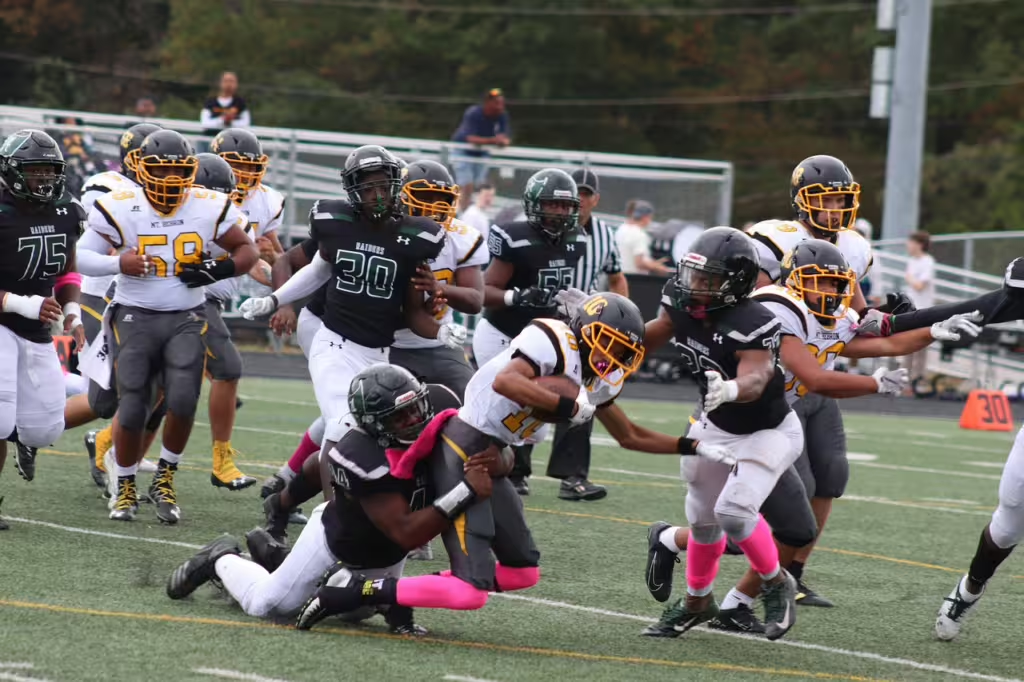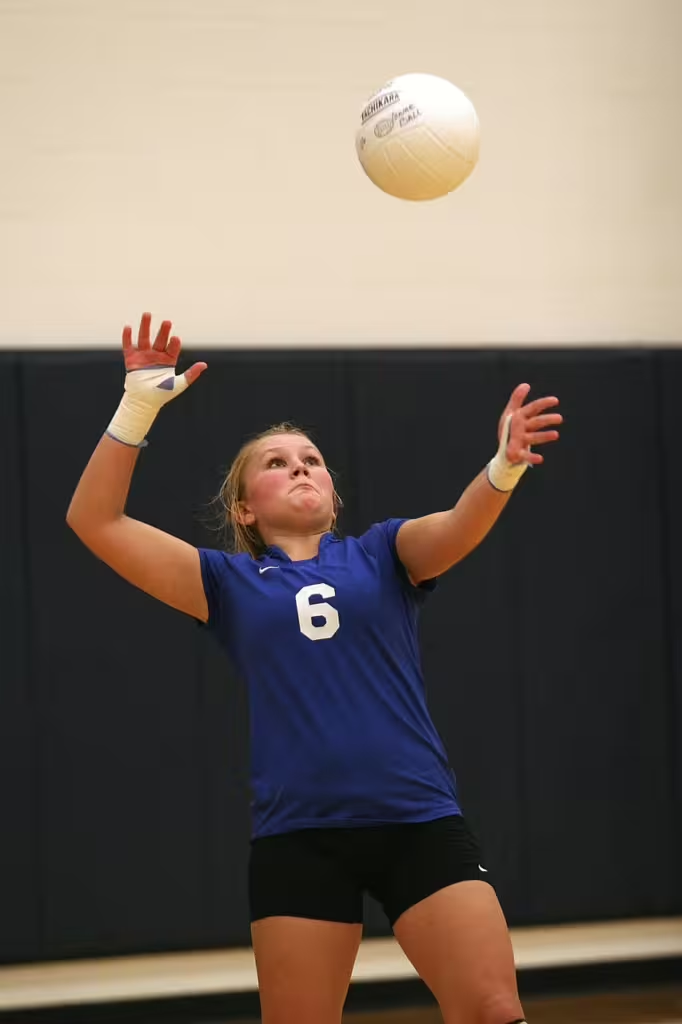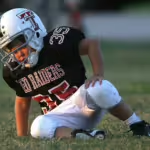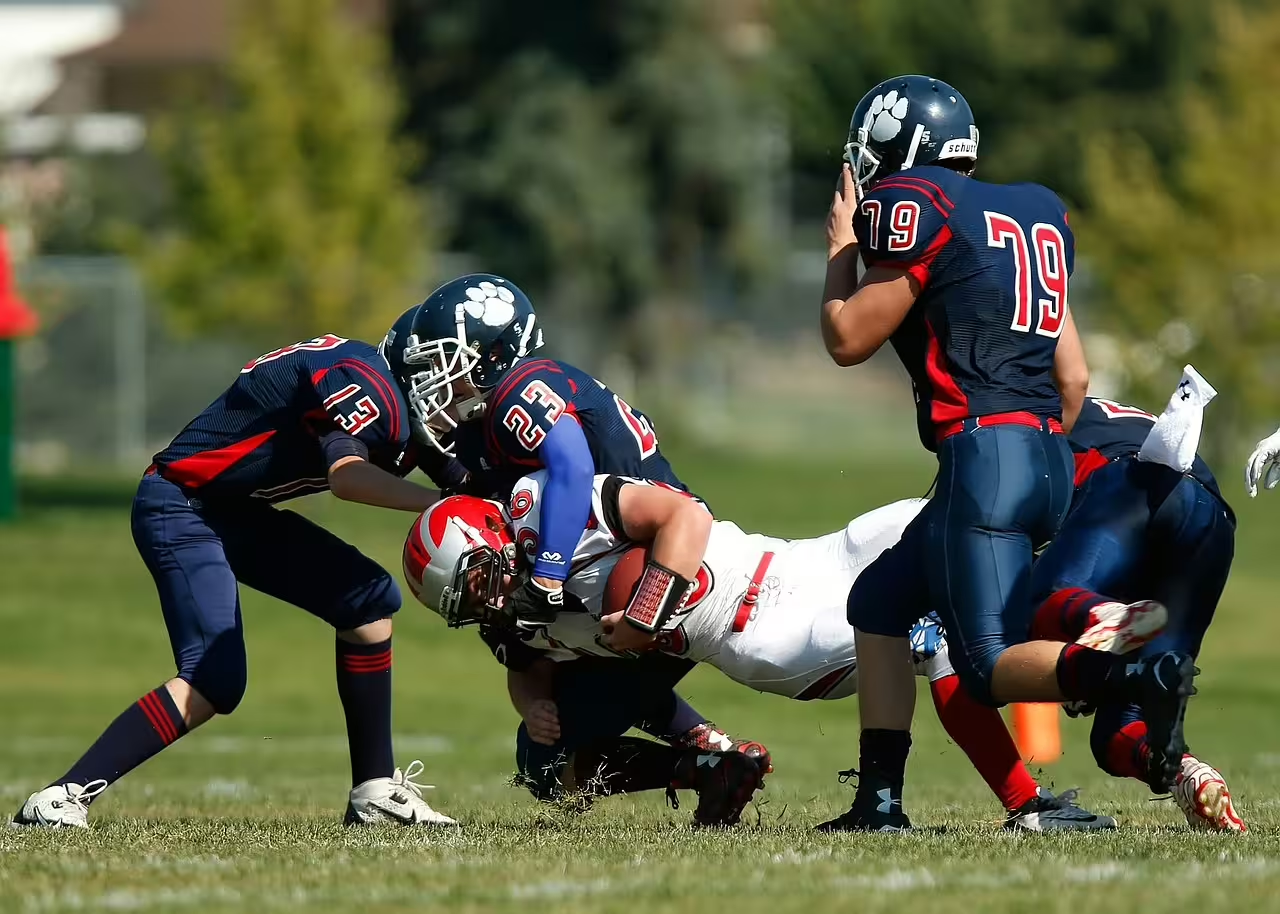When we think about the challenges that our children might face in youth sports, most parents worry about the physical side of things. They worry that their child ‘s physical performance might suffer from injury or overuse, might be concerned about their speed, strength, skill, or endurance. In short, they are worried about their stats and are heedless about what might be going on in that child’s mind.
We get so bogged down in the things we can see, we fail to realize that behind every sprint, every free throw, and every touchdown there is an emotional state to be considered. Whether we realize it or not, student-athletes walk a tightrope between schoolwork, friendships, sports, and family responsibilities. Finding the necessary balance to live a complete daily life isn’t easy for full-grown adults, let alone adolescents. Keeping track of everything and being mentally, emotionally, and physically available to do each, in turn, can be overwhelming, even for the most adept of student-athletes.
In youth sports, kids already struggle with stress, anxiety, and pressure to perform as part of their daily challenges. Once they reach their teenage years and must contend with the added rigors of an overfull schedule, the resultant enhancement of these common challenges, can often be too much to bear. That’s why it’s so important for parents to understand the role that mental health plays in sports and how a positive state of mind can lead to better success both on and off the field.
In this article, we will teach parents about mental health, as it pertains to youth sports, as well as how supporting a child’s mental health can, in turn, support their growth, resilience, and well-being. We will also explore the link that exists between mental health and athletic performance in high school sports, and how homeostasis in either can minimize stress and anxiety, and bolster confidence.

Why Mental Health Matters in Sports
The Mind-Body Connection
Despite what many might believe, athletic performance isn’t determined solely by physical ability. A person’s mental state directly impacts how they play in a number of ways. For instance, stress can not only tighten muscles in a way that leads to more frequent injuries, it can also slow a person’s reflexes, and reduce their endurance.
Anxiety is also kind of a killer, as it can disrupt an athlete’s focus, leading to mistakes happening at crucial moments. This anxiety and stress can compound in an overall loss of confidence, causing hesitation and halting skill development. The reverse of this is that athletes with better mental balance will play better, make better decisions, and recover better when missteps and setbacks do occur.
Academic and Social Pressures
High school students are already juggling heavier loads than they have in previous years. Many students are taking advanced placement classes or college prep course. Some have part-time jobs in addition to their sports and their studies. And every, single one of them is navigating the confusing world of high school social dynamics. Those who do play sports are inundated with practices, games, and travel; all of which demand a significant investment of time and energy. Without the proper support and the right tools to deal with these pressures, some teens may struggle to keep everything in balance. The result is usually burnout, but it can also manifest emotionally or mentally.
The Bigger Picture
Having a strong mental foundation will help your teen to carry the heavy weight of responsibility, scheduling, and mental/physical demand. The lessons they manage to eke out at this time in their lives will help them on the field, in the classroom, and in their adult lives and relationships.
Stress in Student-Athletes
We are going on and on about stress but what we must remember is that stress, in and of itself, isn’t inherently bad. As it turns out, a certain level of stress can sharpen focus and drive motivation. Problems only arise when stress is overwhelming. Causes of stress include a high academic load, pressure to perform, and an uncertainty about their future. Such damaging levels of stress are often evinced by mood swings, irritability, or trouble sleeping. Teens who have frequent headaches or stomachaches before games or tests might be overstressed as well. And of course, anytime a teen seems excessively withdrawn from friends or family, they might be feeling the stress too severely.
Athletes who are stressed may also freeze in the midst of a play, forget certain strategies they had memorized prior to a match, or simply underperform in a way that is unusual for them. Stress can also sap motivation and make a sport that was once a beloved pastime into a misery.
Anxiety in the Spotlight
Anxiety is in the same vein as stress, but this concept goes beyond everyday nervousness. We’re not talking about the usual pre-game jitters most athletes feel, but the persistent anxiety that can often undermine a player’s performance and their enjoyment. If your child is avoiding games or practice, if they are constantly worried, sweaty, nervous, or nauseous, and if they evince negative self-talk, they might be facing severe anxiety. These anxieties can cause athletes to choke under pressure and overthink things they once knew by heart. It can cause panic and a loss of confidence.
The Confidence Factor
Speaking of confidence, this emotional factor might be the foil to both stress and anxiety, but it cannot occur when both are in full swing. Good confidence fuels risk-taking, persistence, and resilience, it allows a player to play boldly and bounce back when mistakes occur. Without it, even the most talented player may give up before they have even had a chance to learn how good they really are!
It’s important to know that confidence isn’t static—it’s shaped by a person’s experiences, feedback, and mindset. Thus, positive reinforcement, supportive coaching, and personal accomplishments are vital to building that confidence up to serviceable levels. Negativity, in the form of harsh criticism, repeated failure without support, or comparisons to others can chip away at one’s confidence, leading to added stress and anxiety. It’s a vicious cycle when its on the downswing, but it can be quite positive when confidence is bolstered by parental support.
Parents’ Role in Supporting Mental Health
Be a Source of Encouragement, Not Pressure
Though coaches and peers will provide some encouragement, it is at home is where your child is going to seek out the most support. We all want the best for our teens, but we sometimes fail to realize how our off-hand comments affect their mental state. Even well-meaning comments about an athlete’s performance can create added pressure. That’s why, instead of focusing on stats or wins, we recommend emphasizing effort, improvement, and overall enjoyment.

Help Manage Time
Parents can also help their teens by helping them to balance school and sports. We can’t make their schedule for them but we can help them to manage it. Parents can do this by encouraging the use of planners, helping to set realistic priorities, and modeling good time-management habits in their own lives.
Normalize Mental Health Conversations
Communication is key! Parents should encourage their kids to talk openly about stress, anxiety, and any negative emotions they might be experiencing. Let your teen know that these feelings of nervousness, frustration, and disappointment are perfectly normal, and that they don’t last forever. The trick is to create a safe space where the child can express their concerns without judgment. This way, they can unload them with people they trust and so they don’t have to take those feelings with them every time they head to school.
Strategies for Supporting Student-Athletes
It’s important to encourage your child to get adequate sleep, nutrition, and downtime. They may not even realize they are overtaxing or overtraining themselves, so it’s important that parents keep an eye on such things. We can also try and teach our kids some tried-and-true, stress-management skills like journaling, listening to calming music, meditation, yoga, and deep breathing exercises. The other trick is to set realistic goals and expectations for them. Don’t reach for the stars at every turn and make sure to celebrate their little victories. After all, little wins can lead to big success as they build an athlete’s confidence over time.
When to Seek Professional Help
The truth is, sometimes stress or anxiety get to the point where they are beyond what parents and coaches can manage on their own. Signs that it might be time to seek help from a counselor, therapist, or sports psychologist, include:
- Persistent sadness or irritability
- Loss of interest in sports or other activities
- Severe performance anxiety leading to avoidance
- Eating or sleeping disturbances
- Talk of hopelessness or self-harm
Above all else, don’t feel bad if you have to seek out professional help. Many teens would crumble under the pressures that school and sports place on them. Moreover, psychologists specialize in performance-related challenges and stress-management techniques. They have the skills they you might be lacking in order to help your young athletes handle the pressure and boost their confidence; and that’s Ok.

Cultured Athlete Says…
As you can see, high school sports are a quagmire of emotional, mental, and physical turmoil for many student-athletes. Indeed, by the time your child reaches high school-level sports, they are going to have a bit more to worry about than just winning the season. Sports at this level are about so much more than simple competition—they are about personal growth, interpersonal connections, and self-discovery—and all of those things will end up having a more profound effect on young people than any single sports season.
Whether you ascribe to psychology or not, it is hard to argue with the proof. In recent years, studies have shown that mental health is the foundation of a person’s overall success, influencing not only how they perform but also how they see themselves and approach life’s challenges. As parents, we need to remember these things and try to our best to support our child’s mental health, not just measure how many personal times or opponents they beat. Wins and losses will fade with the passing years, but balance, mental wellness, and self-belief will last a lifetime.
Discover more from CulturedAthlete
Subscribe to get the latest posts sent to your email.






